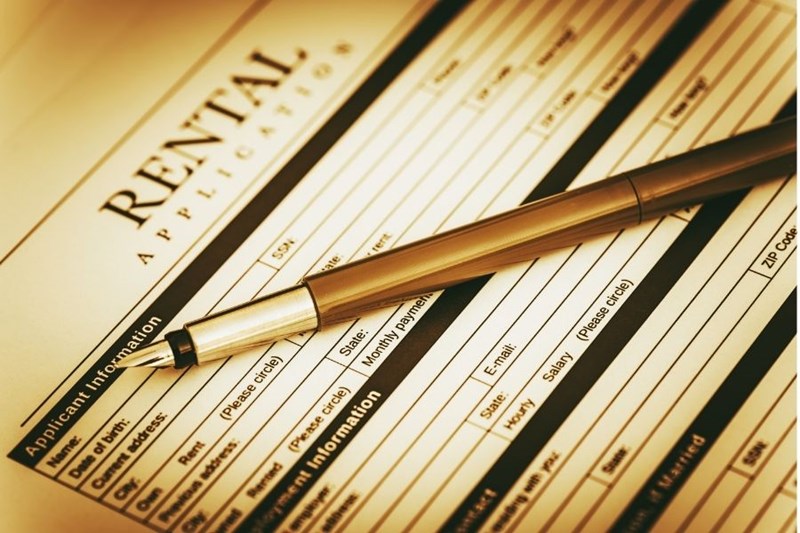
Photo from Canva
In this article:
One of the key attributes of a successful and profitable rental business is finding and maintaining the best renters, which is why landlords and property managers want to be assured they are making the right decision by choosing you.
As a military renter, you have responsibilities, not only to make your rent payments on time each month, but to be a good steward of the property you’ve signed a contract to live in.
Initially, it's the landlord’s duty to thoroughly vet your background and employment histories. Once they’ve seen documentation that you’re a viable candidate, it’s up to you to continue the relationship with communication and honesty; these are the qualities it takes to be an amazing tenant. The adage, “Do unto others as you would have done to you,” goes a long way too!
Read on for examples on how to be the renter your landlord dreams about!
Show Commitment: Read the Contract
Show you’re interested not only in the house, but in managing the landlord/tenant relationship. By reading the contract thoroughly and asking questions, you demonstrate the investment you’re willing to contribute toward the mutual benefit of a happy tenant and landlord.

Photo from Canva
Take the time to understand potentially confusing language. For example, this means asking if the landlord is aware of the Servicemembers Civil Relief Act (SCRA) or if they are willing to accept a custom military clause if you happen to need one.
Security and pet deposits also tend to be misunderstood. Some deposits are refundable, other payments are not, such as a pet fee. Deposits can be deducted for damages at move out, but it’s up to the landlord, and state laws concerning deposits may also come into play. Even small details, such as who (tenant or landlord) earns the accrued interest on the deposits after the lease term expires should be explained.
Here’s more help for Breaking Down the Finances of Renting a Home.
Familiarize yourself with the terms of the lease that might cost money over the duration of time at the property. Prices for lawn care and upkeep chores like gutter cleaning add up. You’ll want to be clear whether or not the money owed for rent each month is the only fee included with the house. Neighborhood association fees are more common payments that go beyond rent.
You also may be liable for damages to the property if you’ve agreed to take care of maintenance but ignored the tasks-- for instance, not maintaining the sump pump which caused water damage.
Your lease should have a defined description as to when, how often, and how much advance notice the landlord is obligated to give before showing up to view the house. Some renters are sensitive about the perceived intrusion. If your homeowner is very hands-on and you don’t appreciate the check-ups, the lease is the place to come to an agreement.
Understand Your Rental Home Is the Landlord's Rental Business
Although your rental house is a temporary home to your family, with minimal responsibilities, the homeowner or property manager is operating a rental business, and the amount of responsibility for maintaining the property legally is significant. Safety codes, taxes, and repairs are just the beginning of the list duties that a business owner has to accomplish.

Photo from Canva
By respecting the home as a business, you acknowledge that an on time rent payment is crucial. When it’s time to discuss deposit returns, comply with the language of the lease if you’ve caused damage beyond the stated parameters.
It’s likely that renters insurance is a requirement described in your lease. As soon as you move in, show proof you’ve purchased coverage. This is a precaution that puts both your mind and the landlord’s mind at ease. Remember, their homeowners policy doesn’t include the renter’s personal belongings and won’t necessarily pay for hotel stays if the property has to be vacated.
Wonder if you need coverage? Here’s 5 Reasons You Need Renters Insurance.
There’s a possibility that your landlord won’t live in the area and much of their duties will require long distance coordination with you, including scheduling repair work. Value your landlord's time and the time of the repair company and stay at home for scheduled work. Rescheduling repeatedly wastes everyone's time and money.
back to top
Don't Hide Problems, People, or Pets
Dishonesty kills relationships, including the one between a landlord and tenant. The chances of successfully hiding something illegal or out of the bounds of a lease are low. Landlords have various ways of keeping up with their property and tenants. From neighbors’ reports to drive-bys, a hidden pet or unauthorized person living in the house will be obvious.

Photo from Canva
Once the initial trust is broken, it will be hard for the landlord to be ok with an eyes and hands off approach to your tenancy, not to mention they may have grounds to evict you.
Mistakes happen. Drywall is easy to damage. Dogs chew baseboards, and kids break everything. Most landlords know a rental property won’t go unscathed and will be fine with working with their tenants to avoid larger issues later. For instance, report a toilet that overflows and floods the bathroom because of a flushed toy. Correcting water damage or mold down the line is more difficult if the problem is covered up or ignored.
If your lease states you must manage the landscaping or another household maintenance chore, keep detailed records of receipts if a company is hired or take pictures to document the work has been done. If a large problem occurs, such as a leaking foundation, you’ll have proof that you’ve cleaned and cleared the gutters on the schedule written in the lease.
Have pets in tow during your PCS? Here’s what you need to know.
Stay Communicative

Photo from Canva
Tenants hate when they can’t find their landlord if there’s a major problem, and landlords hate when tenants surprise them with long-term issues they’ve been attempting to manage without their guidance.
Get more insight in Communication Solutions for Landlords and Tenants.
The inability to pay rent in full or on time is a common issue, but it’s exacerbated by the fact there’s been silence from the tenants after the payment date has passed. The landlord prefers to understand the issues ahead so that they too can prepare their finances. Remember, a rental house is a business.
Pest infestation is a problem that grows out of hand quickly. Although you may have been trying to manage a squirrel nest in the attic on your own, it’s likely that you’re not a pest removal specialist and the damages will grow worse by the day. Tell your landlord about the problem so they can decide how far to let the DIY treatment go. This communication protects the tenant from liability and protects the property from expensive repair.
Ask About Decorating
Here’s the bottom line up front. If your home decorating improves the property, your landlord will likely approve the update after they’ve seen the paint or plans for the change, especially if you’re willing to cover the costs. If you feel it's the homeowner’s responsibility to pay, that’s a discussion to be had up front, not an unwelcome reveal on the move-out date. See Don’t Hide Problems, People, or Pets above.

Photo from Canva
Think as the business owner would and suggest improvements that make you happy and increase the property’s appeal. Neutral paint, a light fixture swap, or ceiling fan installation are strong property enhancements to present to the landlord.
If your tastes are very specific--say your child really wants a bubble gum pink bedroom--just ask. The homeowner could eagerly approve, but may require a neutral color repaint before you leave. Homeowners prefer happy tenants because they’re more likely to take better care of the property and extend their lease, so some personalization is usually on the negotiation table.
If you need inspiration, read Decorate Your Rental Without Losing Your Deposit.
Don’t make major changes, such as adding a deck or replacing a bathroom vanity without explicit, written permission from the owner. If you proceed, it’s also a good idea to have them involved with the progress to make sure everyone agrees with the transformation and the end product.
Go the Extra Mile
Want to make an unforgettable impression on your landlord so they’ll happily send a reference for the next rental property? Here’s a list of small, but impactful ideas to earn a gold star as a tenant.
- Put protective pads on furniture feet to avoid marking floors.
- Don’t leave your version of a “clean home” up for debate; it should be obvious.
- Let the homeowners know if their mail accidentally arrives.
- Maintain a list of home repair vendors and notes about the interactions, positive and negative.
- Tackle small projects like updating the batteries in smoke detectors.
- Chat with the neighbors to show goodwill.
- Leave working light bulbs and toilet paper in the house for the next renter.
The current rental housing market is tough. A shortage of properties has increased the renters pool, which means landlords have plenty of applicants to choose from. You’ll need to stand out and prepare to demonstrate to the owner you fully intend to take care of the property from the beginning of the lease until the end.
Military renters have a reputation for being the best tenants. The ability to pay on time, pride of ownership, or at least of tenantship, and an overall desire to do the right thing sets military renters apart. Take advantage of this standard and show your landlord just how amazing of a tenant you can be by maintaining a strong landlord/tenant relationship.
By Dawn M. Smith

.jpg)
back to top